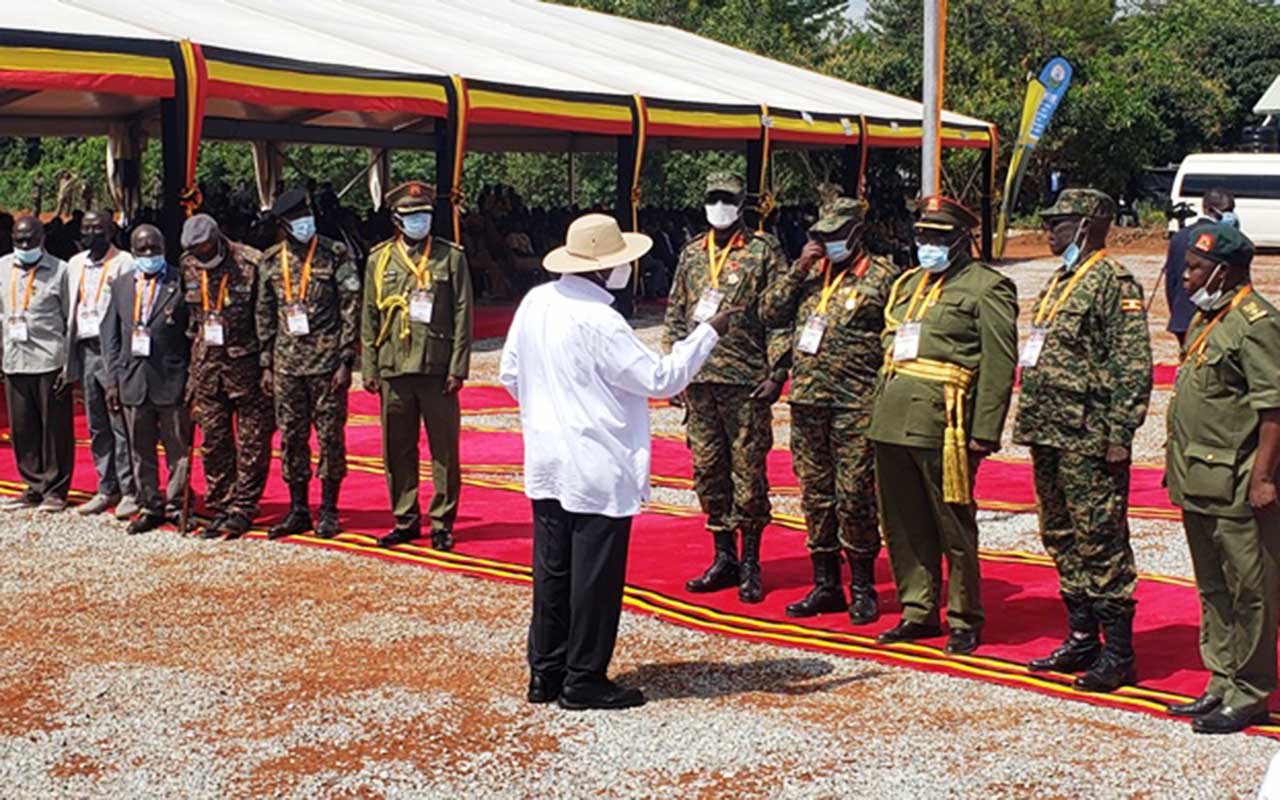Govt can't employ every Ugandan– Museveni

President Museveni
What you need to know:
- Museveni praised his son, General Muhoozi Kainerugaba, the Chief of Defense Forces, for organizing a shorter, more efficient parade.
- At the event, 40 individuals, including police officers and members of the Uganda People’s Defense Forces, were awarded medals for their contributions to Uganda’s independence.
President Museveni has emphasized that while his government is implementing measures to lift people out of poverty, it is unrealistic for citizens to expect the government to employ everyone.
According to Museveni, 80, government jobs are structured with limited vacancies, offering far fewer positions compared to the country's population.
For example, he explained that one teacher is required for every 50 learners, and based on the number of learners, the government would only need to employ around 300,000 teachers. Similarly, he noted that only one Resident District Commissioner (RDC) is needed for a particular area, one parish chief per parish, and a few doctors, highlighting that the government cannot create jobs for everyone. He stressed that it is the private sector’s role to generate more employment opportunities.
“Public service jobs are only 470,000. The majority of the jobs, therefore, must be in the private sector. Already, manufacturing is employing 1.121million people, services 5.076 million people, etc. This is just the beginning. This is the general message of the NRM,” he said.
Museveni criticized some leaders, particularly politicians, for misleading the public into believing that the government can employ everyone, when, in fact, the capacity for government jobs is limited to 470,000 positions. The President made these remarks on Wednesday during the 62nd Independence Day celebrations in Busia District, Eastern Uganda.
Museveni's comments come amidst growing concerns over unemployment, particularly among the youth, who make up the majority of the population and are largely jobless.
To boost the economy, Museveni announced plans to construct the Standard Gauge Railway from Kasese to Malaba, funded by revenues from petroleum. He urged citizens to embrace government programs aimed at poverty alleviation, such as the Parish Development Model (PDM), Emyooga, and Operation Wealth Creation.
Reflecting on Uganda's history, Museveni stated that when the country gained independence in 1962, it entered a modern cash economy, with only 9 percent of households participating in it. Those outside the cash economy, he noted, suffered from poor health, poverty, lack of education, ignorance, and malnutrition, primarily due to politics of identity, tribalism, and gender chauvinism.
He blamed former President Idi Amin for expelling key elements of Uganda’s entrepreneurial class—the Asians—and for further damaging the economy through black markets, speculation, and smuggling. Despite these challenges, Museveni said his government has managed to restore prosperity, strategic security, and African solidarity.
He pointed out that by 1960, affluence was limited to Eastern Europe and Japan, while the rest of the world remained in poverty. Museveni urged Ugandans to reject identity politics, which he believes would hinder economic development. He also emphasized the potential for wealth generation through regional trade, giving the example of tribes producing milk and selling to areas that lack it.
Museveni highlighted the value of coffee on national and international markets, advising farmers to focus on their crops. Despite opposition, Uganda has succeeded in producing milk, and the government is now focusing on developing industries based on raw materials, including textiles and gold. The country is also turning to a knowledge-based economy, investing in sectors like automotive manufacturing, vaccine production, and pharmaceuticals.
He expressed concern about individuals who work solely for personal survival, stating that records show 67 percent of Ugandan households are part of the cash economy, while 33 percent have refused to join. Museveni said he would return to address this issue further, as he believes the 33% are not fully embracing government development programs.
The President expressed his desire to grow the economy to 500 billion shillings, calling on all Ugandans to join him in the fight against poverty. He noted that while traveling to Busia, he observed good infrastructure but also saw poverty-stricken households along the roads. According to Museveni, poverty is an individual problem, but development benefits everyone.
He urged all patriots to work towards East African economic integration, cautioning against creating a situation similar to Latin America in Africa.
Museveni praised his son, General Muhoozi Kainerugaba, the Chief of Defense Forces, for organizing a shorter, more efficient parade.
At the event, 40 individuals, including police officers and members of the Uganda People’s Defense Forces, were awarded medals for their contributions to Uganda’s independence.
Additionally, Museveni was commended by the President of the Central African Republic, Faustin-Archange Touadéra, for maintaining peace, fostering hospitality, and championing regional integration.



